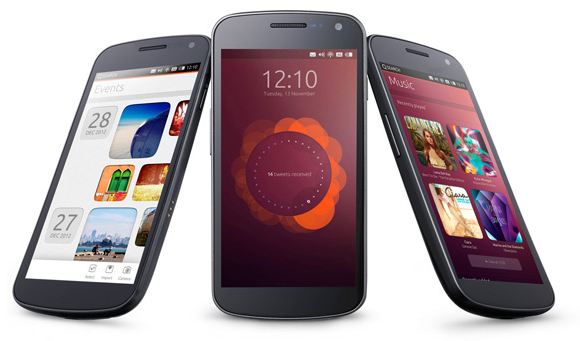Those that have heard of Linux will have no doubt come across Ubuntu before – a simple and fast operating system that offers an alternative to Windows and Mac on many devices. It’s now going to be on smartphones, with a company called Canonical launching Ubuntu for mobile.
The new OS looks slick and intuitive, but if we were to say it was like any existing OS then it would be akin to Android – maybe with a little bit of MeeGo stirred in for good measure. However, the company behind Ubuntu for smartphones is keen to point out that its new OS is much simpler than those you’ll find in most phone shops at the moment. Canonical CEO Mark Shuttleworth reckons that the likes of Android are “overkill” and too complex for many users.
Gestures are important in Ubuntu, with various swipes and flicks necessary to bring up menus and hidden content, such as a simple swipe from the left edge of the screen to the centre, which loads a sidebar containing your favourite apps.
From the homescreen you have the option to view your most used apps, your last used app or the apps that are currently running on your device by means of three different swipe gestures. Similarly to the Safari browser on newer Macs, you can swipe from right to left across the screen to return to the last app you were using, which sounds very handy indeed.
In terms of apps Ubuntu will obviously be behind in terms of numbers when compared to the likes of iOS and Android. However, there will be both web applications and native applications to choose from, and there are already big names such as Facebook, Skype, Wikipedia, eBay and Pinterest on board.
Ubuntu hasn’t been built with just smartphones in mind either; the idea is to be able to dock your Ubuntu smartphone and then use it on a TV or PC monitor as a full PC, and thanks to HTML5 apps your apps will scale to fit smoothly to a bigger screen.
Finally, the idea of the lockscreen has been revamped. Canonical don’t want you to think of the lockscreen as something that gets in the way of you using your phone, but something that you can interact with. Slick graphics will display how far you’ve walked, how many messages you’ve received, how many minutes of call time you’ve used and much more on the lockscreen, and you’ll also have the ability to unlock directly into an app.
The first Ubuntu smartphones will be available later in the year as Android and Ubuntu packages – for the most part the phone will run Android, but you’ll also be able to dock it to a monitor and run Ubuntu for PC tasks. Much later on in the year we’ll start to see the first all-Ubuntu smartphones, which is very exciting indeed.
To find out more about Ubuntu for smartphones, head over to the official site here.


